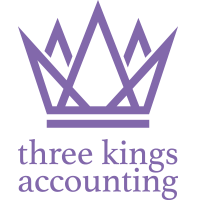he current regime for taxing employer provided cars (commonly referred to as company cars) is intended:
- to encourage manufacturers to produce cars which are more environmentally friendly; and
- to give employee drivers and their employers a tax incentive to choose more fuel-efficient and environmentally friendly vehicles.
Below we set out the main areas of importance. Please do not hesitate to contact us if you require further information.
The rules
Employer provided cars are taxed by reference to the list price of the car but graduated according to the level of its carbon dioxide (CO2) emissions.
In addition, the government has reduced the percentages which apply to lower emissions cars and introduced new performance-related bands for hybrid vehicles with emissions up to 50 g/km depending on how far the hybrid vehicle can travel under electric power.
Percentage charges
| 20 25/26 | |
| CO 2 emissions (g/km) | % of list price taxed |
| 0 | 3 |
| 1 – 50
(split by zero-emission miles) |
|
| More than 130 70 – 129 40 – 69 30 – 39 Less than 30 |
3 6 9 13 15 |
| 51 – 54 | 16 |
| 55 – 59 | 17 |
| 60 – 64 | 18 |
| 65 – 69 | 19 |
| 70 – 74 | 20 |
| 75 – 79 | 21 |
| 80 – 84 | 22 |
| 85 – 89 | 23 |
| 90 – 94 | 24 |
For every additional 5g thereafter add 1% until the maximum percentage of 37% is reached.
ExampleDavid has a company car, a Hyundai Ioniq, which had a list price of £28,395 when it was provided new on 6 April 2025. The CO2 emissions are 26 g/km and its electric range is 39 miles. David’s BiK for 2025/26 is: £28,395 x 13% = £3,691.35. |
Diesels
Diesel cars emit less CO2 than petrol cars and so would be taxed on a lower percentage of the list price than an equivalent petrol car. However, diesel cars emit greater quantities of air pollutants than petrol cars and therefore a supplement of 4% of the list price generally applies to diesel cars (unless the car is registered on or after 1 September 2017 and meets the Euro 6d emissions standard). The maximum charge for diesel cars is capped at 37%.
The diesel supplement does not apply to hybrid cars.
ExampleA diesel car that would give rise to a 22% charge on the basis of its CO2 emissions will instead be charged at 26% for 2025/26. |
Obtaining emissions data
The Vehicle Certification Agency produces a free guide to the fuel consumption and emissions figures of all new cars. It is available on the internet at www.carfueldata.direct.gov.uk. These figures are not however necessarily the definitive figures for a particular car. The definitive CO2 emissions figure for a particular vehicle is recorded on the Vehicle Registration Document (V5).
The list price
- The list price of a car is the price when it was first registered including delivery, VAT and any accessories provided with the car. Accessories subsequently made available are also included (unless they have a list price of less than £100).
- Employee capital contributions up to £5,000 reduce the list price.
Employer’s Class 1A national insurance contributions
The benefit chargeable to tax on the employee is also used to compute the employer’s liability to Class 1A (the rate is 15% for 2025/26).
Private fuel
There is a further tax charge where a company car user is supplied with or allowed to claim reimbursement for fuel for private journeys.
The fuel scale charge is based on the same percentage used to calculate the car benefit. This is applied to a set figure which is £28,200 for 2025/26 (£27,800 for 2024/25). As with the car benefit, the fuel benefit chargeable to tax on the employee is used to compute the employer’s liability to Class 1A. The combined effect of the charges makes the provision of free fuel a tax inefficient means of remuneration unless there is high private mileage.
The benefit is proportionately reduced if private fuel is not provided for part of the year. Taking action now to stop providing free fuel will have an immediate impact on the fuel benefit chargeable to tax and NICs.
Please note that if free fuel is provided later in the same tax year there will be a full year’s charge.
Business fuel
No charge applies where the employee is solely reimbursed for fuel for business travel.
HMRC issues advisory fuel-only mileage rates for employer provided cars. Employers can adopt the rates in the following table but may pay lower rates if they choose.
HMRC updates these rates on a quarterly basis in March, June, September and December. The latest rates can be found at www.gov.uk/government/publications/advisory-fuel-rates.
Employees’ use of own car
There is also a statutory system of tax and NIC free mileage rates for business journeys in employees’ own vehicles.
The statutory rates are:
| Rate per mile | |
| Up to 10,000 miles | 45p |
| Over 10,000 miles | 25p |
Employers can pay up to the statutory amount without generating a tax or NIC charge. Payments made by employers are referred to as ‘mileage allowance payments’. Where employers pay less than the statutory rate (or make no payment at all) employees can claim tax relief on the difference between any payment received and the statutory rate.
How we can help
We can provide advice on such matters as:
- whether a car should be provided to an employee or a private car used for business mileage
- whether employee contributions are tax efficient
- whether private fuel should be supplied with the car.
Please contact us for more detailed advice.


